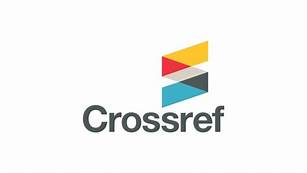Economy
Relative Impact of Fiscal and Monetary Policies on Bangladesh Economy: A Comprehensive Approach
Asif Hossain, Md. Monirul Islam, Mohammad Tareque, PhD
DOI: https://doi.org/10.58718/policyanalysis1120232
Keywords: Fiscal Policy, Monetary policy, GDP growth, ARDL, VECM, VAR
Abstract
For developing countries like Bangladesh, understanding the relative impact of monetary and fiscal policies on GDP growth is crucial to formulate growth-enhancing policy decisions. This paper inspects into the relative effectiveness of these two policies on the real GDP growth of Bangladesh using ARDL, VECM and VAR estimation techniques to ensure comprehensiveness. From the results of all the three estimation techniques, it is seen that in the long run only fiscal policy has positive influence on growth while monetary policy stays either statistically insignificant or negative. In the short run, however, the results from the different estimation techniques are not much consistent. Here, ARDL technique shows that both money supply and government expenditure has statistically significant and positive effect on GDP while VAR-based Variance decomposition (VDC) and Impulse Response Functions (IRFs) state that only government expenditure has positive impact in the short run. In contrast, VECM technique reveals that neither money supply nor government expenditure has statistically significant impact in the short run. As from the results, it is apparent that government expenditure helps generating growth in the long run, it should be raised which may necessitate raising more government revenue. And, the main goal of monetary policy should be ensuring stability of the economy.
Bibliography
1. Ahmad, D., Afzal, M., & Ghani, U. (2016). Impact of monetary policy on economic growth empirical evidence of Pakistan. International Journal of Applied, 4(6), 1–9.
2. Ahmed, Ehsan and Johannes M. J., 1984. St. Louis Equation Restrictions and Criticisms Revisited: Note, Journal of Money, Credit and Banking , 16: 514-520.
3. Ajisaje, R. A. and Folorunso, B. A., 2002. The Relative Effectiveness of Fiscal and Monetary Policy in Macroeconomic Management in Nigeria. The African Economic and Business Review, 3(I): 23-40
4. Ali, S. and Ahmed, N., 2010. The Effects of Fiscal Policy on Economic Growth: Empirical Evidences Based on Time Series Data from Pakistan. The Pakistan Development Review 49:4 Part II (Winter 2010) pp. 497 512
5. Ali, S., Irum, S. and Ali, A., 2008. Whether fiscal stance or monetary policy is effective for economic growth in case of south Asian countries. The Pakistan Development Review 47 (4), 791-799
6. Alshahrani, S. A. and Alsadiq, A. J.; 2014. Economic Growth and Government Spending in Saudi Arabia: An Empirical Investigation. IMF Working Papers, 14 (3), 1. http://doi.org/10.5089/9781484348796.001
7. Andersen, L. C. and Jordan, J. L., 1968. Monetary and Fiscal Actions: A Test of Their Relative Importance in Economic Stabilization. Federal Reserve Bank of St. Louis Review, 50, 11-24
8. Anna, C., 2012. The Relative Effectiveness of Monetary and Fiscal Policies on Economic Activity in Zimbabwe 1981:4–1998:3): An Error Correction Approach. International Journal of Management Sciences and Business Research, 1(5): 1-35
9. Appah, E.,2010. The Relationship between Fiscal Policy and Economic Growth in Nigeria (1991-2005), International Journal of Economic Development Research and Investment, 12.
10. Arif, K.M. and Ali, M.M., 2012, “Determinants of Inflation in Bangladesh”, Journal of Economics and Sustainable Development 3(12), 9-17.





